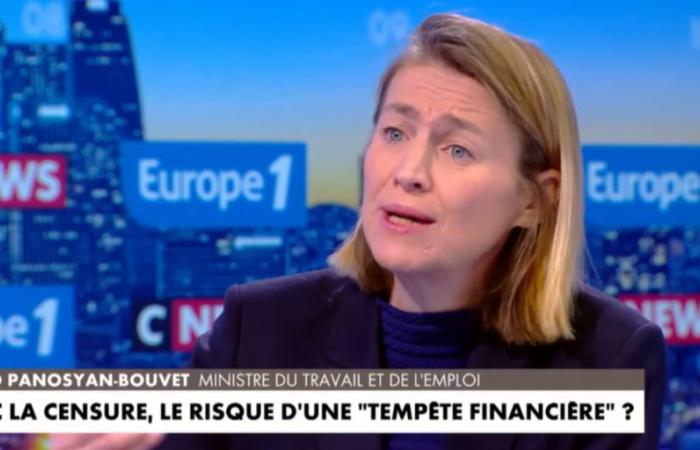Europe1 .fr
09h01, November 29, 2024modified to
09h26, November 29, 2024
Guest of La Grande interview Europe 1-CNews this Friday, the Minister of Labor and Employment responds to concerns about the vote on the 2025 budget, at the heart of parliamentarians' discussions. If for her, “France is entering an unknown which could precipitate a financial crisis and a Greek scenario”, there would be no “American-style shutdown”.
Towards a financial storm? Different scenarios are emerging, while Michel Barnier's government could be censored if it cannot convince parliamentarians to vote for the budget for 2025. Without an agreement, that of a simple reduction of the 2024 budget is also very likely, which would propel France towards a financial crisis. “This storm is that we would not have a budget,” warns Astrid Panosyan-Bouvet, Minister of Labor and Employment, guest of La Grande interview Europe 1-CNews this Friday.
“So it would not be an American-style shutdown with civil servants who would not be paid, hospitals which would not operate. But it would indeed firstly be a difficulty in being able to exercise the essential functions of the State. And that would above all be a risk of political instability which could precipitate a financial crisis”, affirms the minister at the microphone of Romain Desarbres.
Call for responsibility
She refers in particular to the increase in interest rates for France, which would mean more borrowing and more borrowing costs for businesses and households. “So no one has any interest in entering a slide with a huge stranger,” she adds. The minister therefore calls for the responsibility of political forces to vote on the budget and avoid catastrophic scenarios.
“Everyone is putting pressure on, including parties that have been government parties like the Socialist Party. So, I am simply saying that there is a long way to go between the recovery of our finances public and a fair compromise to find, because otherwise, it is a real unknown in which no one has any interest in finding themselves”, concludes Astrid Panosyan-Bouvet.






